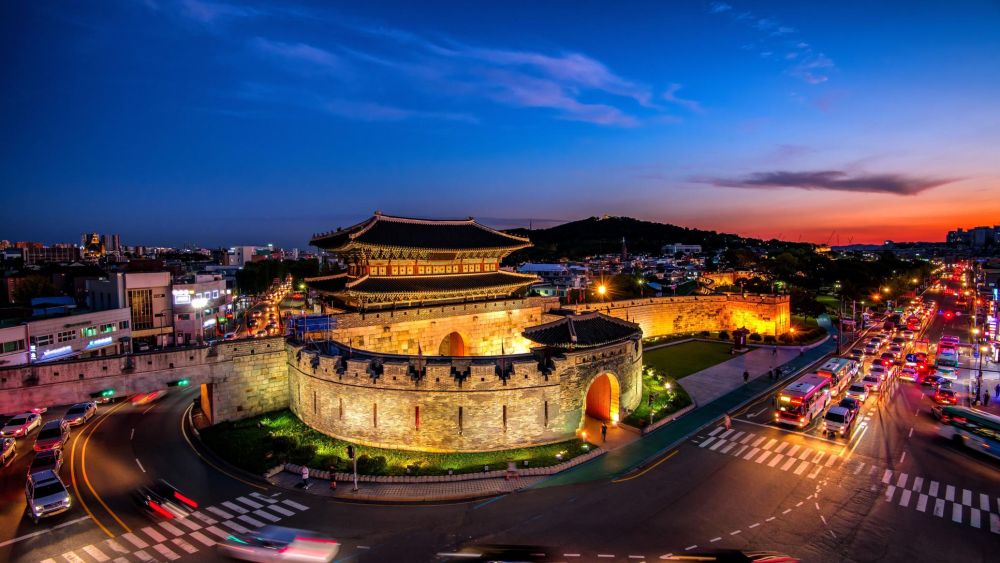

Suwon, the provincial capital of Gyeonggi-do in South Korea, is a city steeped in history and culture. Famous for its well-preserved Hwaseong Fortress, a UNESCO World Heritage site, Suwon has long been a destination for both local and international tourists interested in Korean history and tradition.
Tourism in Suwon began to develop significantly during the late 20th century. Prior to this, Suwon was principally known as a historical military city and a regional center. However, the recognition of Hwaseong Fortress as a major historical site sparked an increase in visitors.
The major turning point for Suwon tourism came in 1997 when Hwaseong Fortress was inscribed on the UNESCO World Heritage List. This accolade drew global attention, showcasing Suwon's cultural significance and ensuring the preservation of its historical sites. The fortress, constructed during the Joseon Dynasty under the reign of King Jeongjo, is a testament to the city’s historical importance and a major draw for tourists interested in the ingenuity of ancient fortification techniques.
Since the late 20th century, Suwon has invested heavily in tourism infrastructure to cater to the growing number of visitors. The city established the Suwon Convention Center and created a number of cultural festivals, such as the Suwon Hwaseong Cultural Festival, which provides visitors with an immersive experience of Korean culture and history.
Beyond its historical sites, Suwon has embraced its identity as a hub for technological advancement, with Samsung’s headquarters and digital city located within the city limits. The Samsung Innovation Museum is a contemporary attraction that draws tech enthusiasts from around the world.
The latest trends in Suwon tourism focus on an integrated experience, combining the city’s technological achievements with its rich historical and cultural heritage. There has been a rise in thematic tours that explore the city's modern advancements alongside its traditional assets. Additionally, the spread of K-pop and Korean dramas has led to an increase in pop culture-themed tourism, with fans visiting filming locations and experiencing Hallyu (Korean Wave) first-hand.
Like all destinations globally, Suwon's tourism industry was impacted by the COVID-19 pandemic. The city adapted by enhancing safety protocols and is in the process of recovery by promoting domestic tourism and preparing for the return of international visitors as travel restrictions ease.
Suwon's journey as a tourist destination reflects its ability to blend the old with the new. The history of tourism in Suwon is a narrative of a city that cherishes its past while continually evolving to meet the interests of modern travelers. With a rich history, vibrant cultural festivals, and a strong emphasis on technological innovation, Suwon offers a multifaceted tourism experience that is expected to continue flourishing in the coming years.